As pet parents, the thought of our furry companions undergoing surgery can be scary, but what’s even more heartbreaking is knowing that our precious pets are in pain. The truth is, many pets will likely need to undergo a surgical procedure at some point in their lives to correct a health issue or repair an orthopedic injury to reduce pain and discomfort and improve their quality of life.
That being said, one of the most common orthopedic injuries among canines is a full or partial tear, or complete rupture, of the Cranial Cruciate Ligament (CCL) — an important stabilizing ligament inside a dog’s knee in their hind legs. Some type of trauma commonly causes a CCL tear or rupture during physical activity, similar to when an athlete injures their ACL. Additionally, CCL injuries also occur as a result of aging, tissue degeneration, obesity, breed, and poor physical condition.
So how do veterinarians repair and correct injuries to the CCL? Here at Eagle Animal Hospital in Kansas City, our pet surgeons specialize in TPLO surgery (Tibial Plateau Leveling Osteotomy), an advanced procedure that utilizes cutting-edge laser technology resulting in less tissue damage, reduced pain, and a faster recovery time. This procedure effectively corrects the cause of the injury by reorienting the tibia bone and stabilizing the joint to restore normal function and movement. Here are a few signs and symptoms to keep an eye out for indicating the potential need for TPLO surgery.
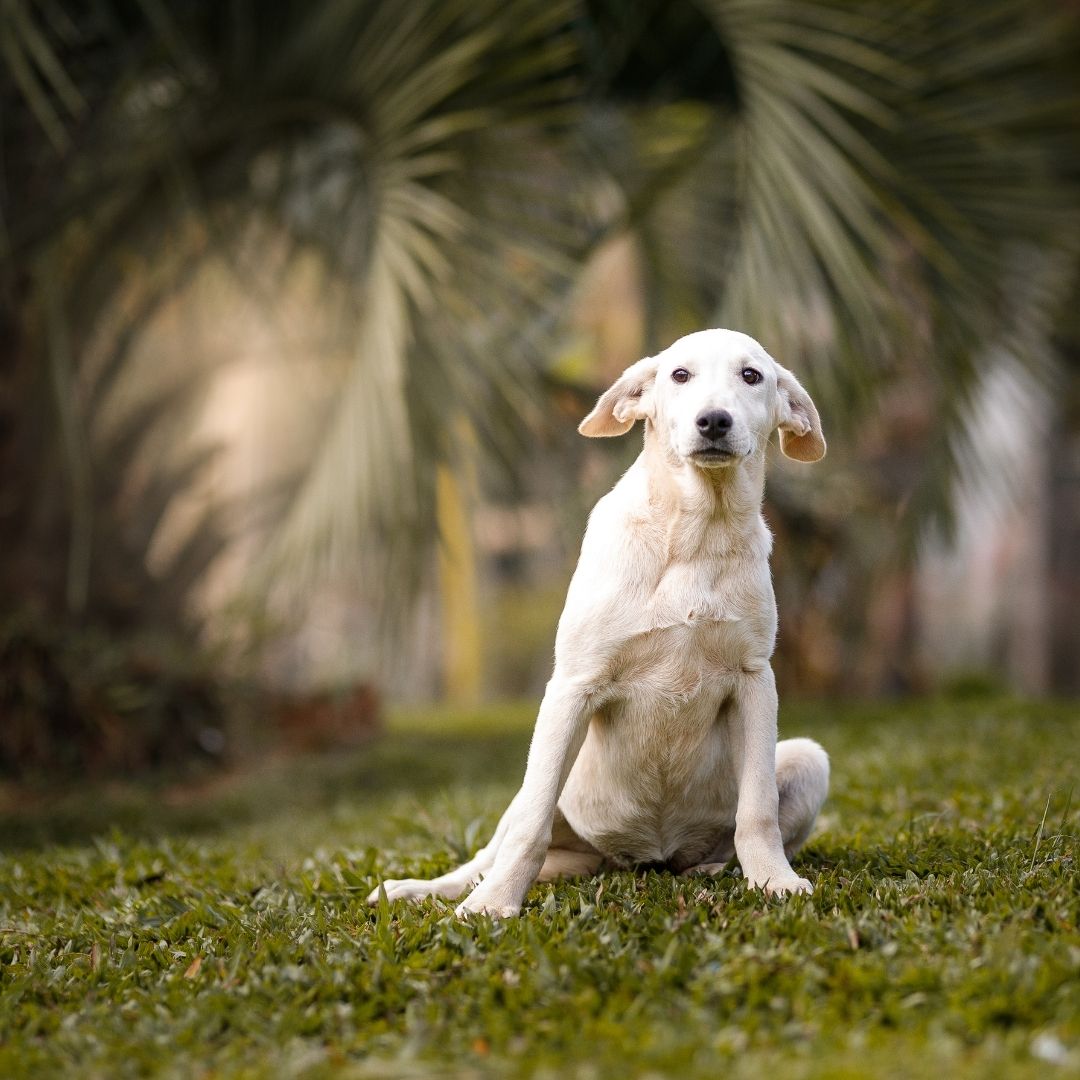
Your Dog Sits Awkwardly
A common sign of a CCL injury is if your pup sits with one hind leg out to the side, rather than sitting with both legs underneath them. When you notice your dog is sitting in an unusual position like this, it’s an indication that they may be experiencing some level of pain and discomfort in their leg. In this case, we suggest contacting your veterinarian right away to schedule an exam of their leg and sitting posture to determine if diagnostics are needed for a better look inside of their knee to diagnose or rule out a CCL tear or rupture.
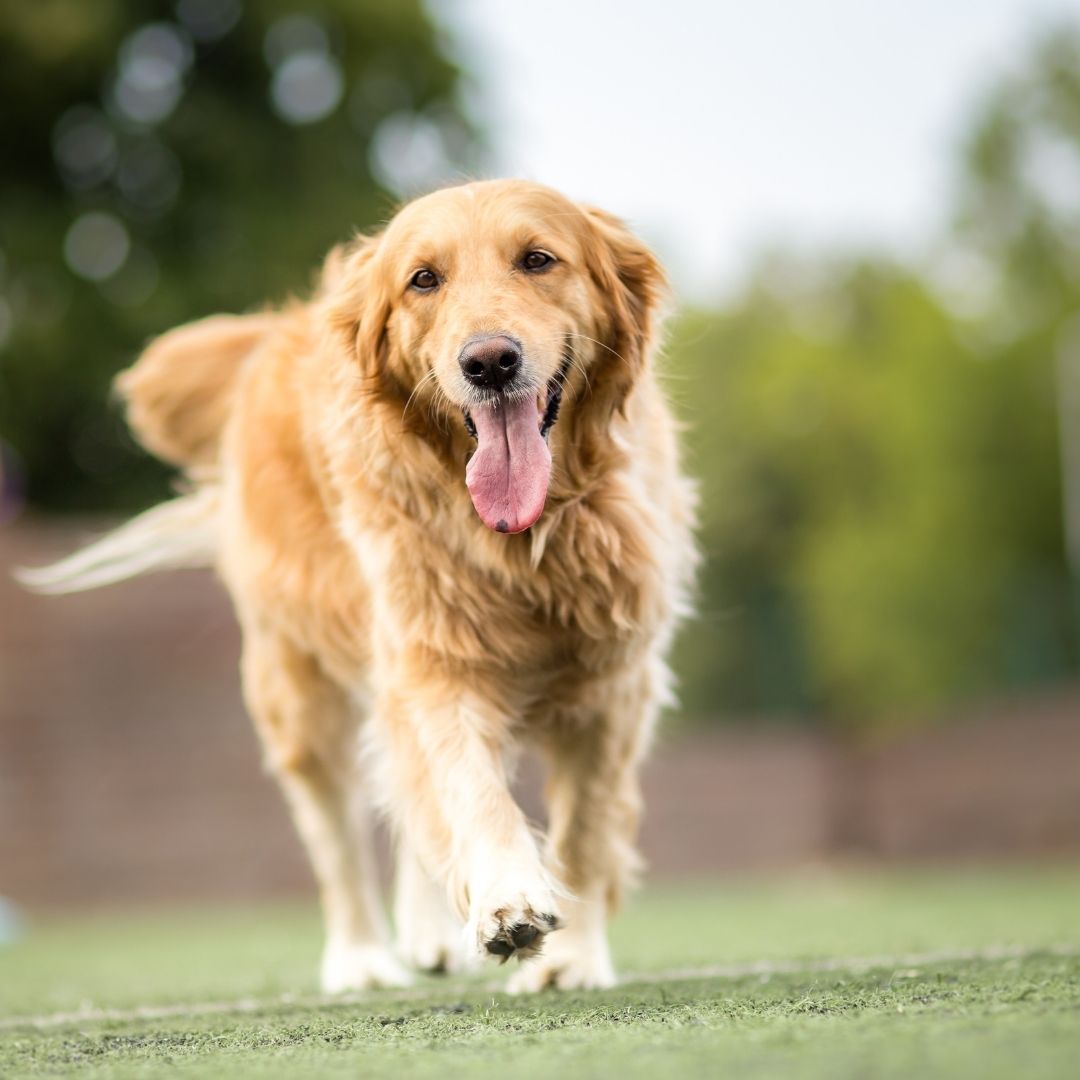
Difficulty With Routine Movements
If you notice your dog suddenly begins struggling with routine movements like walking, running, or rising from laying down, this could be a sign of an issue with their knee. When dogs tear or rupture their CCL, it can limit their range of motion, and thus, their ability to move as they normally would. A tear or rupture will also cause inflammation, swelling, and pain as result of instability in the joint that causes the femur bone to rub and slide against the back of the tibia. The swelling combined with the pain will make even the simplest movements difficult. In this case, a TPLO surgery can help restore stability in the joint and better movement.
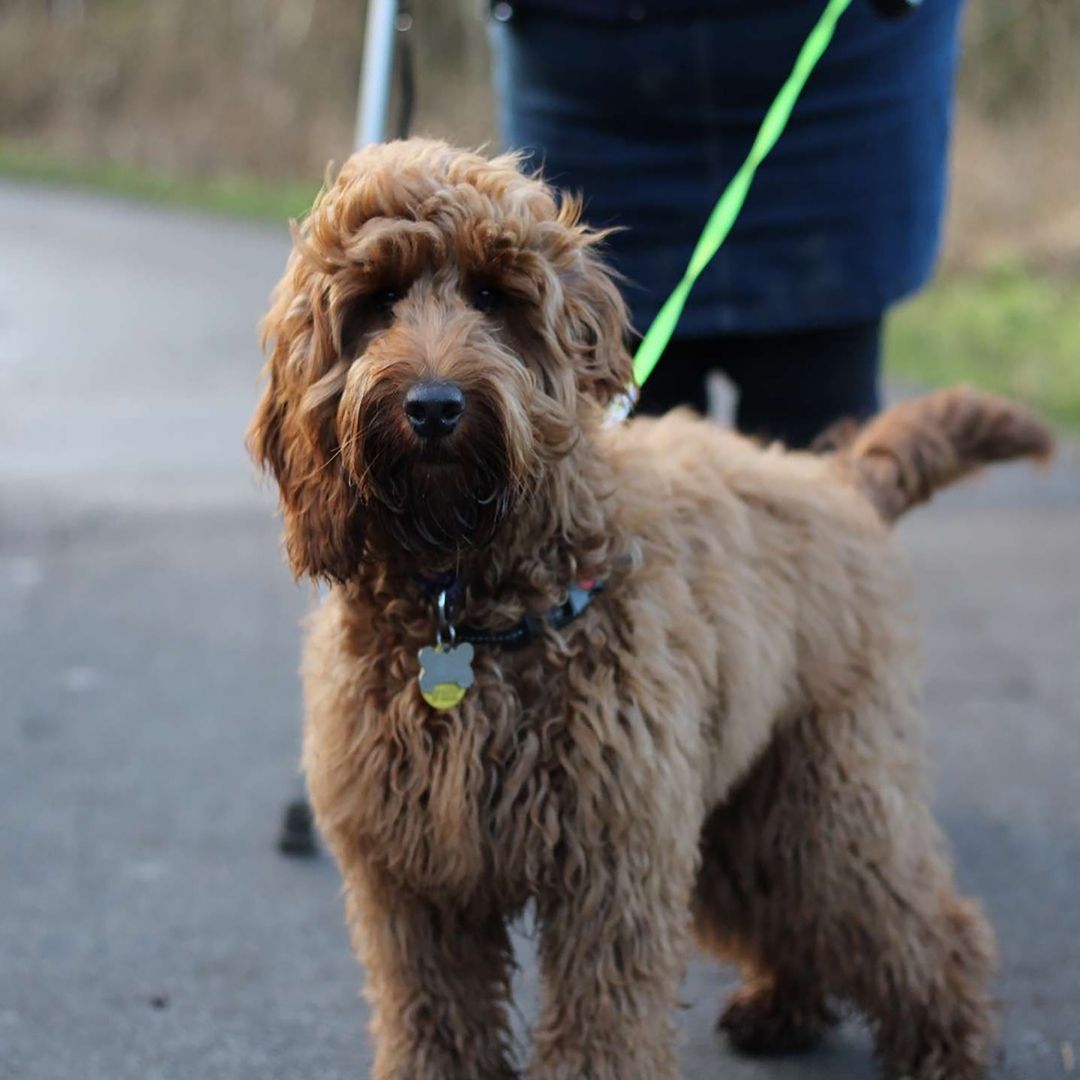
Limping or Lameness
Occasional limping is normal with dogs who sometimes get objects stuck in their paws, but if you notice worsening limping or lameness, this could be a sign of a more serious issue. It’s important to check their paws, and if there’s no visible issue, monitor your pet for a few days to see if the limping or lameness subsides. If it doesn’t, you’ll want to bring them in for an evaluation right away to see whether or not TPLO surgery is indicated, based on your veterinarian’s findings.
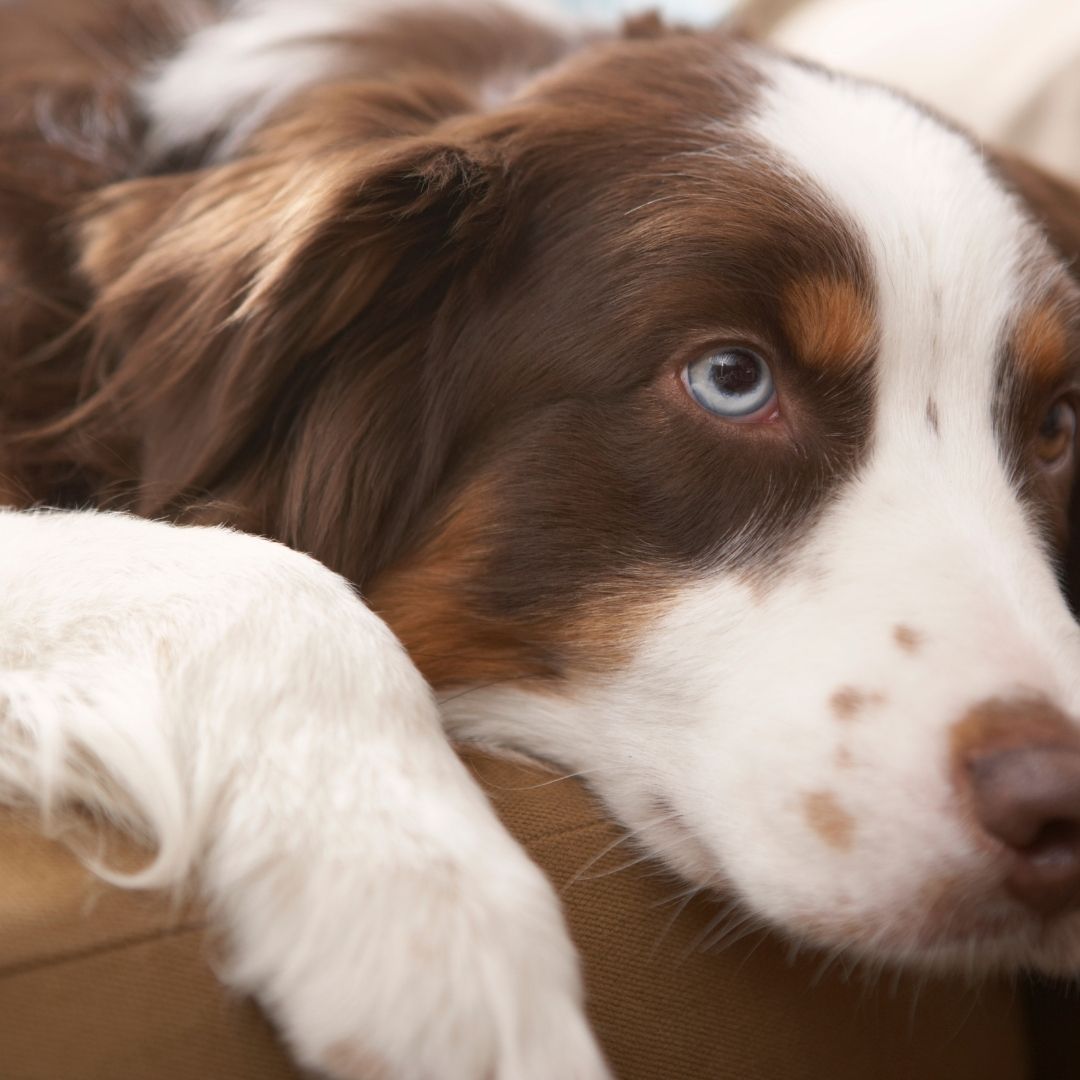
Your Dog Can’t Bear Any Weight
A slight limp is one thing, but if your furbaby can’t bear any weight on their leg while walking around or standing, this is one of the most immediate signs of an injured knee. In this case, you will want to get in touch with your vet immediately to bring them in for an examination and, most likely, diagnostic testing to identify a tear or rupture.
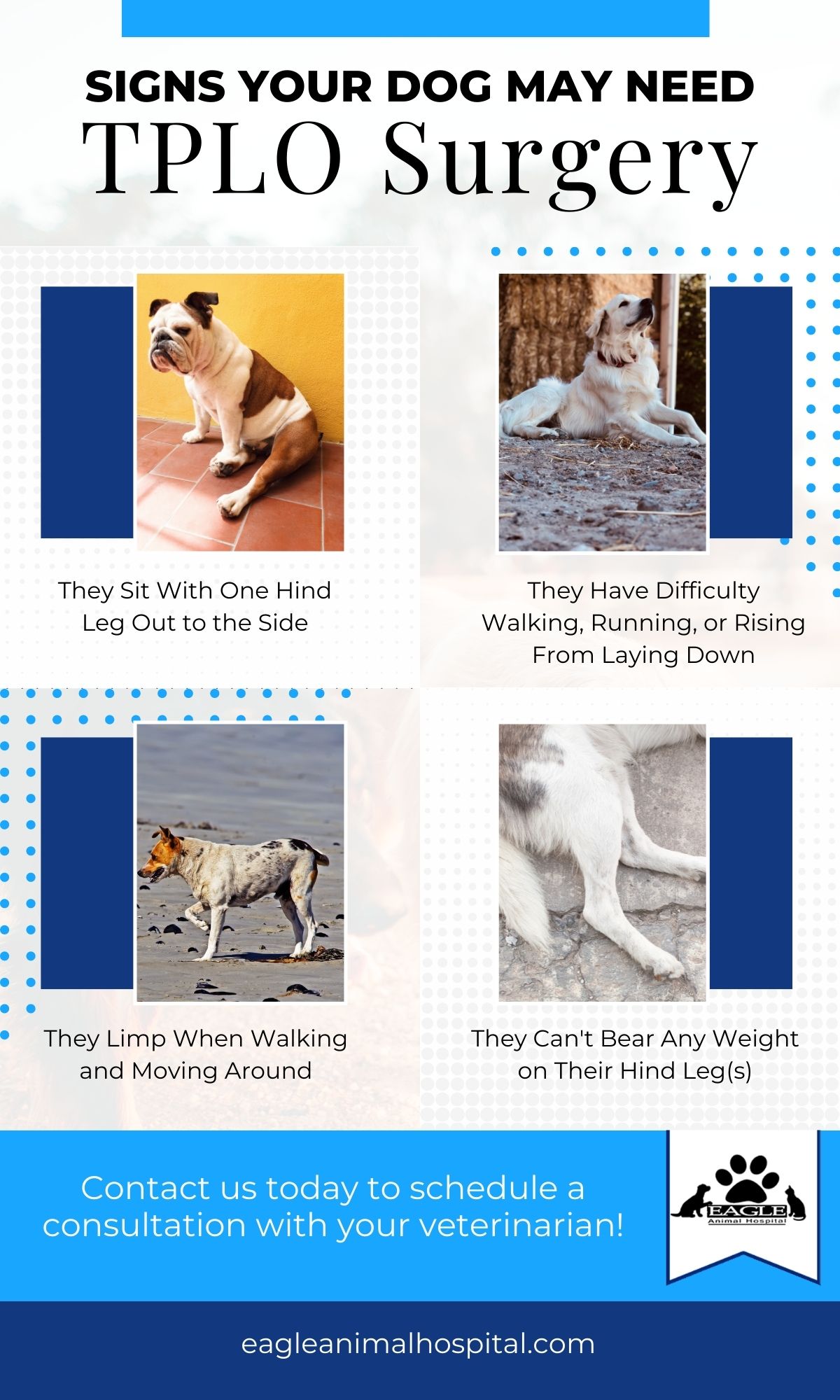
We understand that it can be difficult to identify when your furry best friend needs a TPLO surgery to repair a torn or ruptured knee ligament. If you notice any of these signs, or the pet seems to be in considerable pain stemming from their hind leg, contact Eagle Animal Hospital right away to schedule an evaluation with your trusted Kansas City veterinarian. Contact our Client Care team today!
